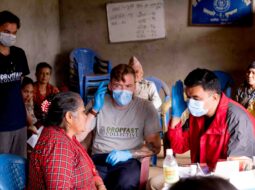The Human Side of Healing: Why Empathy Is Essential in Modern Medicine
Modern medicine has made incredible strides in technology, treatments, and diagnostics, yet one factor remains irreplaceable: empathy. Empathy in healthcare is more than a kind gesture or polite communication. It is the ability to understand a patient’s feelings, perspective, and needs, then use that understanding to guide care. This human connection has tangible benefits for […]
Read More









